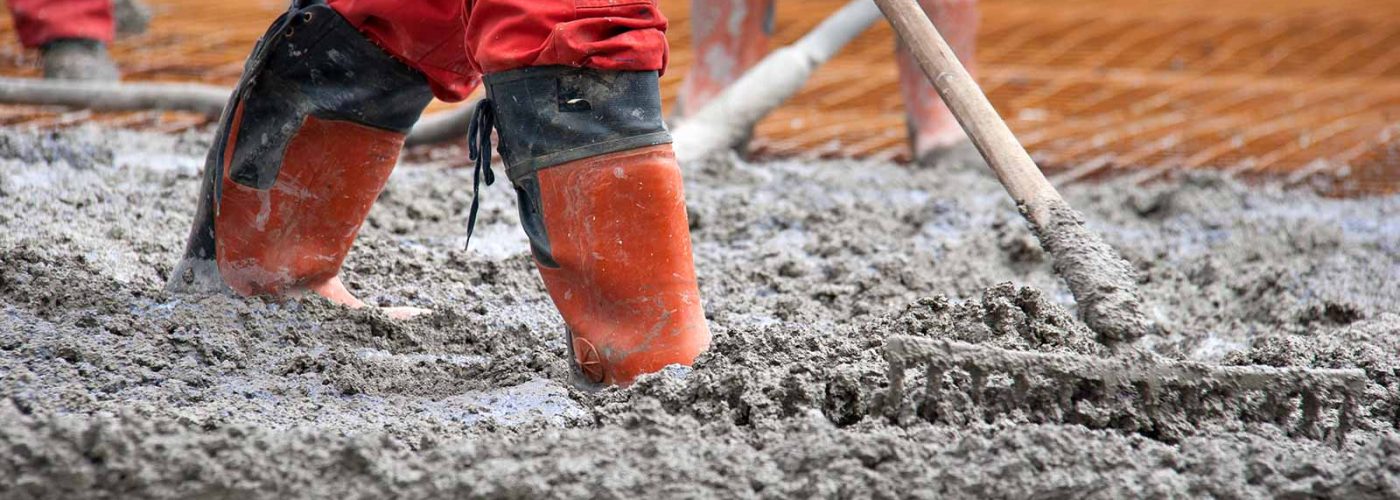Concrete has been the backbone of construction for millennia, from the enduring structures of ancient Rome to today’s high-rise developments. Yet, as the UK construction industry faces economic pressures, sustainability demands, and labour shortages, the way we approach concrete services must evolve. By blending historical insights with cutting-edge techniques, the sector can enhance durability, efficiency, and environmental responsibility.
Let’s explore some key advancements and best practices in concrete services, from material innovation to professional expertise, and how they can shape the future of UK construction.
The Timeless Lessons of Roman Concrete
One of the most groundbreaking revelations in modern construction comes from an ancient source: Roman concrete. Recent MIT research has uncovered that its legendary durability stems from a unique hot-mixing technique, combining quicklime, water, and volcanic ash (pozzolana) at high temperatures. This process creates self-healing calcium clasts that fill cracks over time, ensuring longevity unmatched by modern Portland cement.
Why This Matters for Today’s Concrete Services
- Self-Healing Properties: Unlike conventional concrete, Roman-inspired mixes could drastically reduce maintenance costs and extend the lifespan of infrastructure.
- Sustainability: Longer-lasting concrete means fewer replacements, lowering carbon emissions and resource consumption.
- Improved Techniques: Modern contractors can adopt modified hot-mixing methods to enhance structural resilience, particularly in high-stress applications like bridges and foundations.
While full-scale adoption requires further research, integrating these principles into contemporary practices could revolutionise how we build.
The UK Concrete Market: Challenges and Opportunities
The UK’s heavy materials market is undergoing a period of transformation in 2025, as construction priorities shift toward smarter, more sustainable solutions. With evolving project demands, regulatory changes, and innovations in materials and technology, this moment offers a chance to reimagine how concrete services can deliver greater efficiency, flexibility, and environmental value.
Key Trends Driving Innovation in the Industry
1. Sustainability-Led Solutions
The industry is embracing greener practices, with recycled aggregates and permeable concrete gaining momentum. These innovations not only reduce landfill waste but also enhance stormwater management. Low-carbon concrete mixes, incorporating materials like crushed glass and industrial by-products, are helping the sector meet ambitious net-zero targets while maintaining performance standards.
2. Advancing Workforce Capabilities
While labour and skills shortages present a challenge, the industry is proactively adopting automation and AI to streamline batching and pouring processes. At the same time, initiatives such as the National Masonry Academy’s CITB-approved training programmes are equipping workers with cutting-edge skills to meet the evolving demands of modern construction.
3. Volumetric Mixing for Precision and Efficiency
Volumetric mixing technology is revolutionising on-site delivery, offering precise, just-in-time concrete supply with minimal waste. This approach is particularly well-suited to large-scale commercial projects, supporting both productivity and sustainability goals.
The Critical Role of Professional Concrete Contractors
While DIY concrete work may suffice for small projects, professional contractors are indispensable for ensuring structural integrity, efficiency, and compliance. Here’s why:
Precision in Material Selection and Mix Design
Not all concrete is the same. A skilled contractor assesses factors like load-bearing requirements, weather resistance, and curing conditions to determine the optimal mix – whether for a driveway, industrial floor, or high-rise foundation.
Advanced Finishing Techniques
Proper finishing is crucial for durability and safety. Techniques like power floating (for ultra-smooth industrial floors) or brush finishes (for slip-resistant surfaces) require specialised tools and expertise.
Repair and Maintenance Expertise
Cracked or deteriorating concrete isn’t just an eyesore – it’s a safety hazard. Professional repair services use high-quality materials and methods to restore surfaces, preventing costly replacements and enhancing property value.
“The future of concrete lies in blending time-tested methods with cutting-edge technology. Roman concrete taught us the value of durability, and now, with advancements like self-healing mixes and carbon-reduced formulations, we’re able to build structures that last longer while minimising environmental impact. At our firm, we’ve seen firsthand how precision mix design and sustainable materials can transform project outcomes – whether it’s a residential driveway or a commercial foundation. The key is investing in the right expertise and staying ahead of industry shifts.” – Eivor Acuna, Director, EKA Concrete
Sustainable Concrete: Building a Greener Future
The construction industry accounts for a significant portion of global CO₂ emissions, with cement production alone responsible for ~8% of the total. Fortunately, concrete services are adapting with eco-conscious solutions:
- Recycled Aggregates: Crushed concrete and glass reduce reliance on virgin materials
- Permeable Concrete: Allows water infiltration, mitigating urban flooding and replenishing groundwater
- Carbon-Reduced Mixes: Innovations like Cemfree (a cement-free binder) are gaining ground in the UK
Many major contractors are now undertaking this shift, proving that sustainability and performance can coexist.
Looking Ahead: The Future of Concrete Services
As the industry navigates economic and environmental challenges, several developments will shape its trajectory:
- AI and Automation: From mix design optimisation to robotic pouring, technology will enhance precision and reduce waste.
- Policy and Investment: Government support for infrastructure projects and green incentives will be crucial to revitalising demand.
- Cross-Sector Collaboration: Partnerships between researchers, contractors, and material scientists will drive innovation – much like the rediscovery of Roman techniques.
Concrete services are at a crossroads. By embracing ancient wisdom, leveraging modern technology, and prioritising sustainability, the UK construction sector can build structures that are not only durable but also environmentally responsible. Whether through self-healing mixes, professional expertise, or recycled materials, the future of concrete lies in balancing tradition with innovation.
For industry professionals, the message is clear: adapt, innovate, and build smarter. The foundations of tomorrow’s infrastructure depend on today’s choices.





